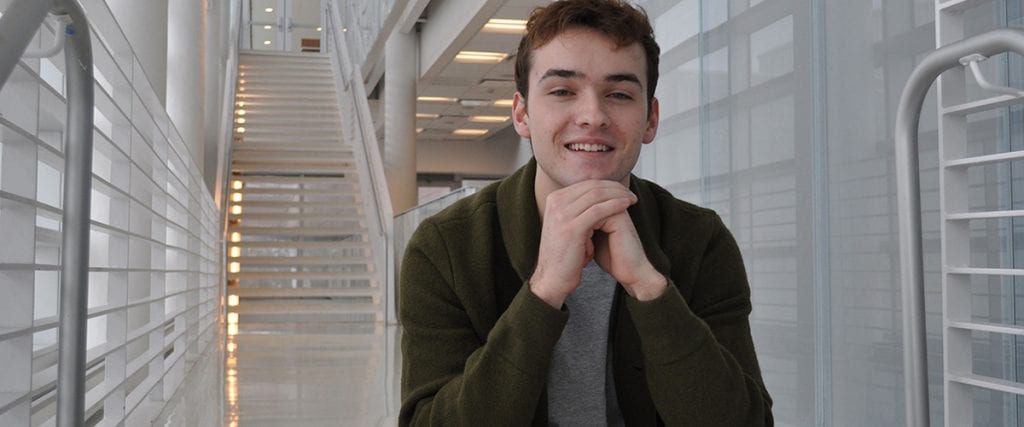Columbia Business School Talks Taxing Multinational Corporations

The first step toward social responsibility is, arguably, fair taxation. There’s just one problem—for years, multinational corporations have raced to pay the fewest taxes or avoid paying it altogether. For example, Apple employs a few hundred people in Ireland, so it falls under the .005 percent tax bracket. And Apple isn’t the only multinational company to do so.
Investing in Your Future With These New MBA Jobs

Finance careers continue to be a popular and lucrative option for recent MBA graduates. The work is varied, as finance relates to many industries and companies. In addition, the field is obviously very rewarding, with average graduate earning more than $140,000 according U.S. News & World Report. One of the most popular and well paid areas of finance is work at investment banks.
According to the Corporate Finance Institute, investment banking is the division of a financial institution that aides governments, corporations, and organizations through capital raising and mergers and acquisitions advisory services. Investment banks typically act as intermediaries between investors and corporations, and are often popular landing spots for MBA degree holders to bring their talents. Here’s a look at some of the best new MBA jobs in the investment banking sector: Continue reading…
Rutgers Students Spark Social Entrepreneurship, and More – New York News

Let’s explore some of the most interesting stories that have emerged from New York business schools this week, including Rutgers students jumping into social entrepreneurship.
Artificial Intelligence Gets Real – Stevens Institute of Technology School of Business Blog
Artificial Intelligence is now a $20 billion global industry and investment in AI is projected to triple in the next three years. AI is gradually reshaping many aspects of our daily lives right now. For instance, Apple’s Siri and Amazon’s Echo use AI-type processes, along with Google Maps and Translate. Notably, AI has become integrated into our transportation and medical systems, from self-driving buses, to diagnosing X-rays, AI has shown itself to be highly reliable for many processes.
Electrical and computer engineering professor K.P. “Suba” Subbalakshmi and founding director of SIAI (the Stevens Institute for Artificial Intelligence), asserts, “Simply put, our vision is to drive AI research and application that solves some of those tough ‘big’ problems that have so far resisted solving.”
AI will profoundly reshape society as we know it, but Subbalakshmi reassures the public,”It will permeate everything that we are doing, that’s a fact. But how it’s going to permeate sensibly and how that will affect our lives is in our hands, not the machines’.”
You can read more from the recent Stevens blog entry here.
Enactus Competition Sparks Student Interest in Social Entrepreneurship – Rutgers Business School News
Enactus is a group at Rutgers Business School that fosters social entrepreneurship as a way for students to empower their communities. Ben Foresti, a member of Enactus, worked with the chapter’s executive board to organize a social case competition that inspired a group of Rutgers students to create a unique high school-based incubator program to address food insecurity in New Brunswick.

“We thought a case competition would be a good way to introduce the wider public of Rutgers to social entrepreneurship,” Foresti says.
Foresti shares how he become involved in Enactus:
“While I was exploring clubs to join, I thought I wanted something that would give me good professional development and I was also looking to do something volunteer related. Enactus seemed like a good intersection of the two concepts. It offers professional development and there’s also the focus on improving your community in a sustainable way. It struck me as a perfect organization.”
Foresti reflects on his motivations for holding a social case competition. “We thought a case competition would be a good way to introduce the wider public of Rutgers to social entrepreneurship.”
You can find out more about the article here.
The Evolution of Wine Futures Pricing Research – Whitman School of Management News
Recently, professor Burak Kazaz of Syracuse University’s Martin J. Whitman School of Management delivered a talk late last year, offering faculty and Ph.D. students a closer look into his research on wine futures pricing. Kazaz’s research collected a range of data from New York to the Bordeaux region of France in order to to build a mathematical model that would predict wine futures prices.
During his talk, Kazaz provided an overview of the wine supply chain, which begins with the winemakers. He notes:
“It is important to note these wine markets do not sell only physical bottles of wine. They also sell wine futures. ‘En primeur,’ or wine futures, is a purchase method that allows distributors to purchase wine while it is still in the barrel before it is bottled.”
Kazaz’s predictive model has shown astonishing accuracy, with an average error rate of only 10 percent. Neil Taylor, vice president at Live-ex wrote to the team lauded Kazaz, “Your predictive model is certainly the most accurate I have seen of all of the work we have either done ourselves or participated with.”
Check out more from the recent article here.
Strong Hiring Numbers Highlight Banner Year for NYC School – New York News

Let’s explore some of the most interesting stories that have emerged from New York business schools this week.
Strong Hiring Proves Employers Crave Stevens’ Blend of Business, Technology Skills – Stevens Institute of Technology SOB Blog
The class of 2018 at the Stevens Institute of Technology’s School of Business recently posted a 98 percent placement rate, earning salaries of $72,480; far above NYC and national averages. The Stevens MBA focuses on how data and analytics are changing the way professionals work and how technology creates new opportunities while solving complex problems.
Associate Dean of Undergraduate Studies Dr. Ann Murphy notes, “We enjoy close relationships with managers in financial services, accounting, technology and media, which keeps us ahead of the rapid changes in industry. That real-world input influences our curricula, which helps our students get better internships and the jobs they want upon graduation.”
Seth Kirschner ’18, who majored in Business & Technology before accepting a position as a cyber risk advisory consultant with Deloitte, asserts, “The industry expertise of the faculty at Stevens comes through so clearly in the classroom. You’re learning from professors like Dr. Kevin Ryan, who have patents and years of experience in the telecom industry, or a turnaround strategist like Dr. Murad Mithani, who teaches you how to change a failing company. As a student at Stevens, you’re surrounded by excellence.
You can read more about the Stevens’ Class of 2018 here.
The Social Benefits of Candid Photos – NYU Stern School of Business News
New joint research from NYU Stern Professor Alixandra Barasch finds that candid photos elicit a more favorable response in certain social situations because they are seen as more authentic.
Barasch co-authored a new paper with Wharton’s Jonah Berger entitled “A Candid Advantage? The Social Benefits of Candid Photos,” which uses five experiments to determine how candid photos increase interest in observers in the realm of friendship and dating.

Barasch and Berger’s research finds that more candid, “real” photos are seen as favorable than staged ones, even in professional settings.
Barasch and Berger write, “People often assume that a curated, polished version of the self will generate the most favorable responses—that by smoothing rough edges and presenting one’s best side, others will like and want to interact with them more. But this assumption is not always correct.”
Barasch continues, “In some cases, viewers prefer an unvarnished picture because it seems more genuine. People value authenticity because it feels more accurate.”
You can read more about the research here.
Journalism Class Supports Lehigh’s West Coast Connections – Lehigh College of Business and Economics News
Launched in January 2017, the Lehigh@NasdaqCenter offers immersive learning experiences to six Fellows each year, offering a West Coast campus extension for Lehigh students based in Silicon Valley. This program is just one way in which Lehigh builds an academic bridge from Bethlehem to the innovation ecosystem of Silicon Valley.
Samantha Dewalt, managing director of the Lehigh@NasdaqCenter, describes the interdisciplinary program:
“The media fellows report on programs and events at the center, interview featured entrepreneurs and produce multi-media stories across a range of platforms about the risks and rewards of entrepreneurship. We work together to select projects the students are excited about and ones that will benefit both Lehigh and Nasdaq Center communities.”
Entrepreneur Craig Gordon, ’76, founder and Managing Director, Blueshift Research remarks, “I think this is a great example of Lehigh innovating in a course where there is nothing like it anywhere in the country. The enthusiasm was unbelievable. You want that at any experience you have at any university.”
You can read more about the Lehigh learning experiences here.
Harvard Talks Managing Disorganized Employees, and More – Boston News

Let’s explore some of the most interesting stories that have emerged from Boston business schools this week.
How to Manage Someone Who Is Totally Disorganized – Harvard Business Review
Disorganized employees can be wellsprings of frustration, but there are ways to help them better understand how disorderly tendencies impact others.
Harvard Business School‘s Rebecca Knight recently discussed strategies in HBR, addressing root behavior causes and ultimately develop better systems to manage workloads.
“’Is this person’s approach creating negative outcomes, or is it just a style difference?’ If your report indicates ‘disorganized but otherwise reliable, you may have to back off.'”
Rosie Perez (not the actor), Lead Financial Officer of Global Consumer Business Planning and Analytics at American Express, adds, “It takes a lot of time to change ingrained behavior, but it can be addressed. Most importantly, as leaders, it is our job to help coach our colleagues [with] constructive and pointed feedback.”
You can read more about the research here.
Bye-Bye Ivory Tower: Innovation Needs an Ecosystem to Thrive by Tracy Mayor – MIT Sloan Ideas Made to Matter
Innovation is not exclusively indigenous to Silicon Valley. We continue to see exciting developments in London, Tel Aviv, New York, Boston, China, Nigeria, Ghana, and South Africa. However, despite the benefits of globalization, the world of innovation is not wholly flat.
New MIT Sloan research has determined that there are geographic hotspots, or “innovation ecosystems,” where ideas move more easily from inception to impact.
Phil Budden, a Senior Lecturer Specializing in Innovation and Entrepreneurship, notes how the traditional “triple helix” that has long driven innovation—university, government, and corporations—is now joined by two additional players: entrepreneurs and risk capital.
“It’s so important to have innovation-driven entrepreneurs involved. They’re producing the companies of the future. You can’t just have today’s companies [in an ecosystem], you need to have those leaders who are going to produce future companies.”
Fiona Murray, Associate Dean for Innovation, urges corporations to take advantage of startups and entrepreneurs to help experiment on their behalf.
“What these startups tend to do very well is define, order, and test their assumptions through a series of what we call ‘innovation loops. So, one of the benefits of going from a purely internal research and development process to working externally is that you can really rely on the universities and startups in an ecosystem to do that experimentation for you.”
You can read more about global innovation here and watch the recent discussion below.
Joy Field Garners Top Award from Decision Sciences Institute by William Bole – Carroll School News
BC Carroll School of Management Associate Professor of Operations Management Joy Field has received the highest honor bestowed by the Decision Sciences Institute (DSI), a global society of more than 1,800 scholars dedicated to fostering knowledge for better managerial decisions.
Field was named the 2018 co-recipient of the Dennis E. Grawoig Distinguished Service Award, named for a founder of the 50-year-old Institute. The other recipient was Morgan Swink of Texas Christian University.
DSI President Johnny Rungtusanatham of Ohio State University asserts, “This is a highly competitive distinction awarded to those who have made a continual impact on the Institute and the disciplines it serves.”
Field reflected on her two decades of involvement with the Institute. “DSI has been a major contributor to all aspects of my professional development—publishing, teaching, and service—and I am delighted to have been chosen to receive this award from among the many colleagues who have also contributed so much to DSI.”
Find out more about the recent award here.
Let Introverts be Introverts, Says Stevens Guest Speaker – New York News

Let’s explore some of the most interesting stories that have emerged from New York business schools this week.
To Be Successful, Organizations Should Let Introverts Be Introverts, Says Stevens Speaker – Stevens Institute of Technology School of Business News
Introverts make up a third to a half of our workforce, and yet the majority of workplaces are built for extroverts—from open floor plans, bustling activity, to meetings dominated by who can be most assertive. These environments are not conducive to introverts, who are most productive when left alone to work and create.
Susan Cain, speaker at the Stevens Institute of Technology’s Excellence Through Diversity Lecture Series, shares how important it is to create that space for different work styles.
“There is no such thing as a one-size-fits-all environment. We need to be thinking day by day, team by team, office design by office design, how we can set things up so that there are varying levels of stimulation.”
Cain adds, “There have been a whole bunch of studies that have come out over the years showing that most people believe that introverts make inferior leaders and are passed over for leadership positions. On the other hand, there is another set of studies showing that introverts in leadership positions often deliver out-sized performance returns.”
You can read more about Cain’s lecture series event here.
Faster Internet Fuels Job Growth in Africa – Columbia Business School News
New research from Columbia Business School‘s Jonas Hjort and Uppsala’s Jonas Poulsen finds that the expansion of fast Internet in Africa has created jobs, increased employment rates, and greatly benefited populations with lower levels of education.
Professor Hjort writes, “These findings shed light on how modern information and communications technology can affect employment rates, structural change, job inequality, and firm growth in the poorest region of the world.”
“Our results imply that faster Internet allows firms to create (or retain) a lot of positions that otherwise would not be tenable in Africa,” adding that “access to information and communication can help give people with lower education a more secure foothold on the economic ladder, and improve living standards.”
You can read more about the growth here.
Impact Investing is About to Become More Mainstream Than Ever – Gabelli Connect
Last month, 350 guests gathered for Fordham’s inaugural Impact Investment Convening to discuss investing for social and environmental good.
Blended finance projects are already cited by the United States, Canada, Netherlands, and the Nordic countries as “proof that private capital could answer the problems that, historically, government couldn’t.” Investors are successfully driving interest in socially responsible investing and there is great potential to reach untapped markets.
The Convening was organized by Peter Lupoff, MBA ’86, Gabelli executive-in-residence and Center for Research in Contemporary Finance fellow. Lupoff explains, “What’s more is that the greatest transition in wealth is about to occur, from boomers to millennials. They care about how their money is spent, socially and environmentally, so it makes good sense for the traditional markets to embrace this – the capital will demand it.”
Keynote speaker Danielle Kayembe, CEO and founder of GreyFire Impact, points out, “The gender divide in consumer products and industry at large reflects a huge untapped area. Some estimates say women drive up to 85 percent of consumer spending in the United States, and, globally, women control some $36 trillion in total wealth.”
You can read more about impact investing here.
